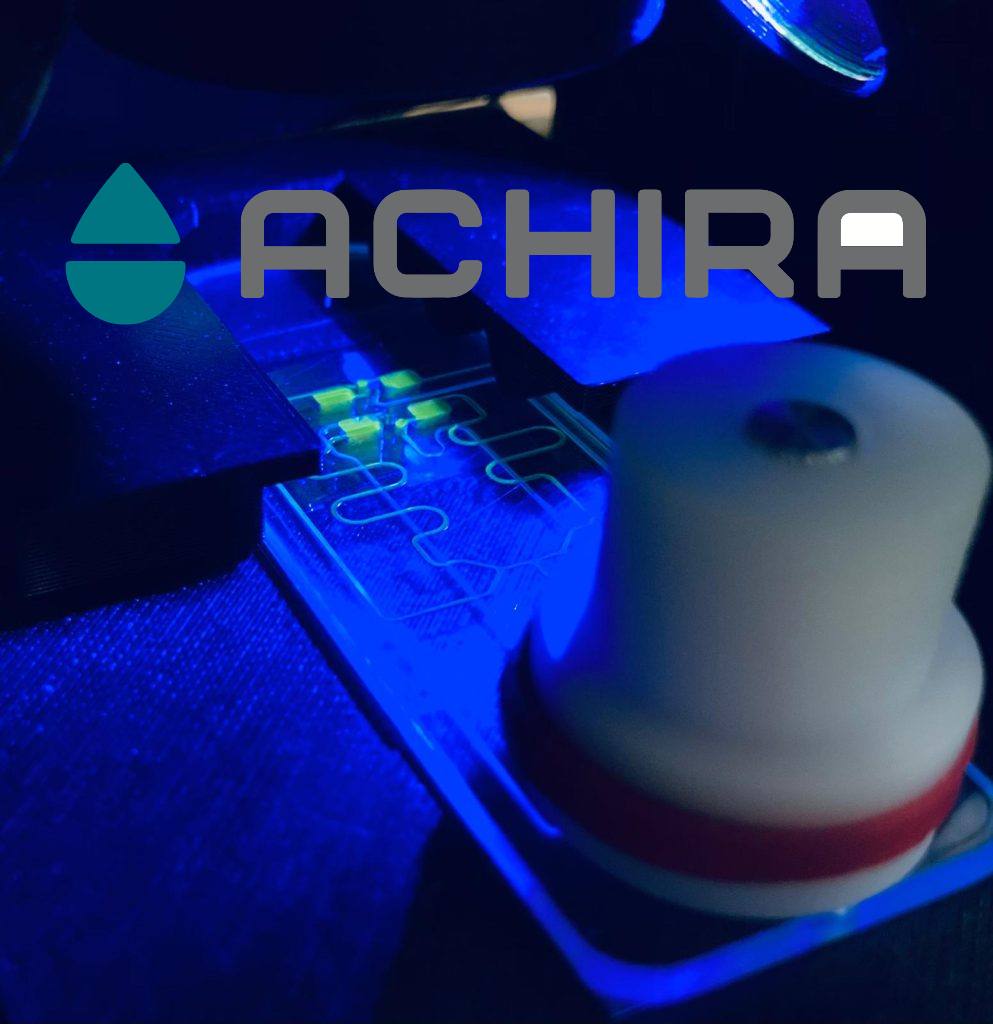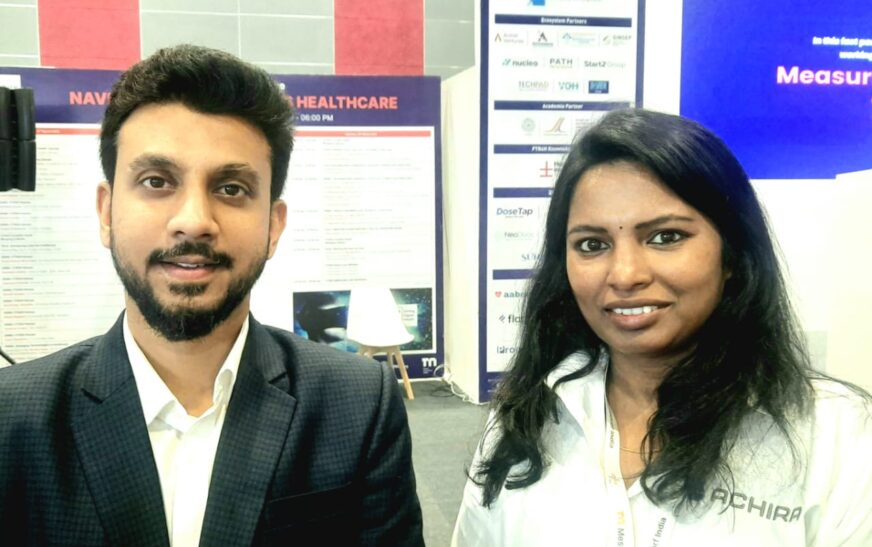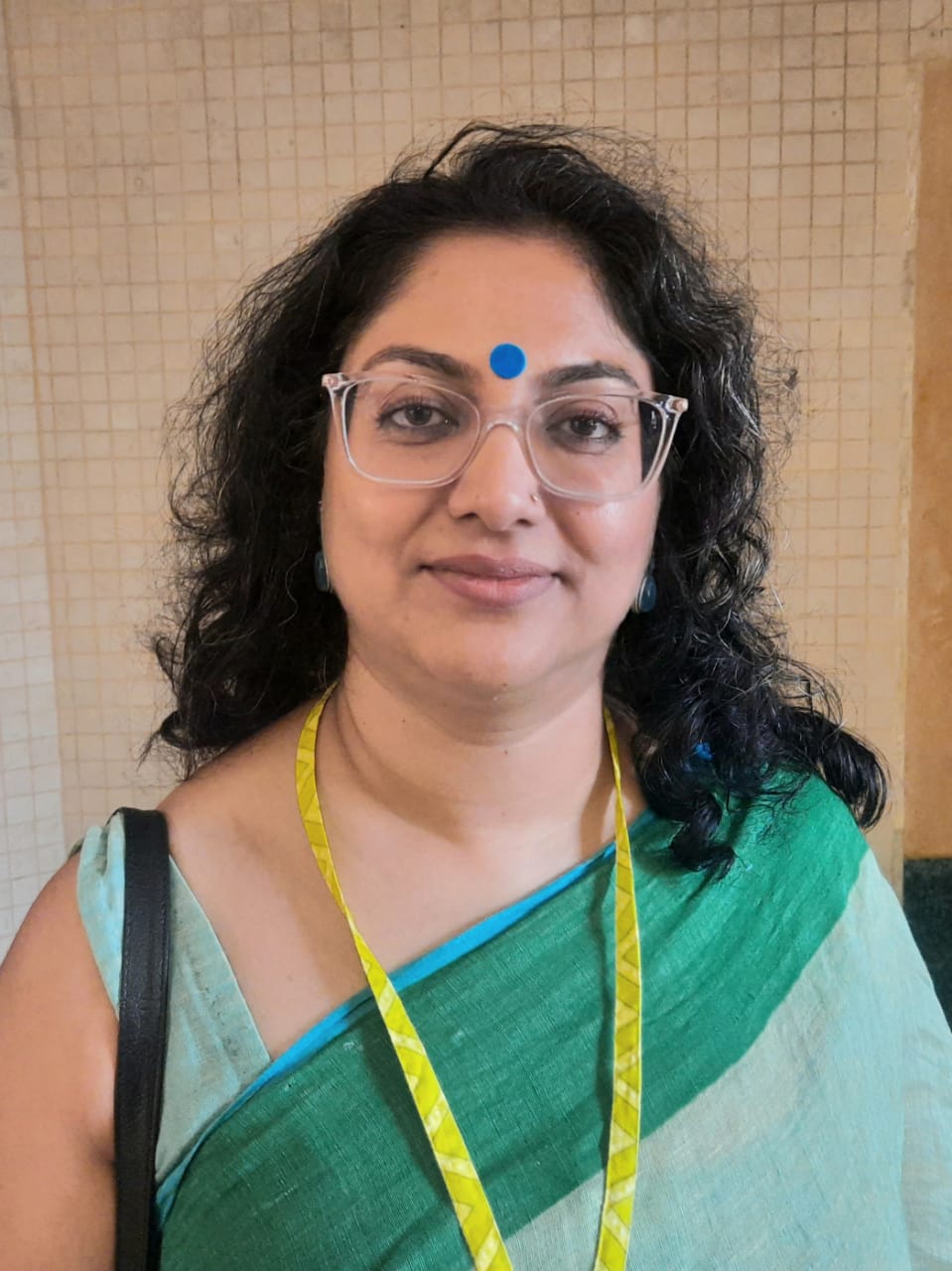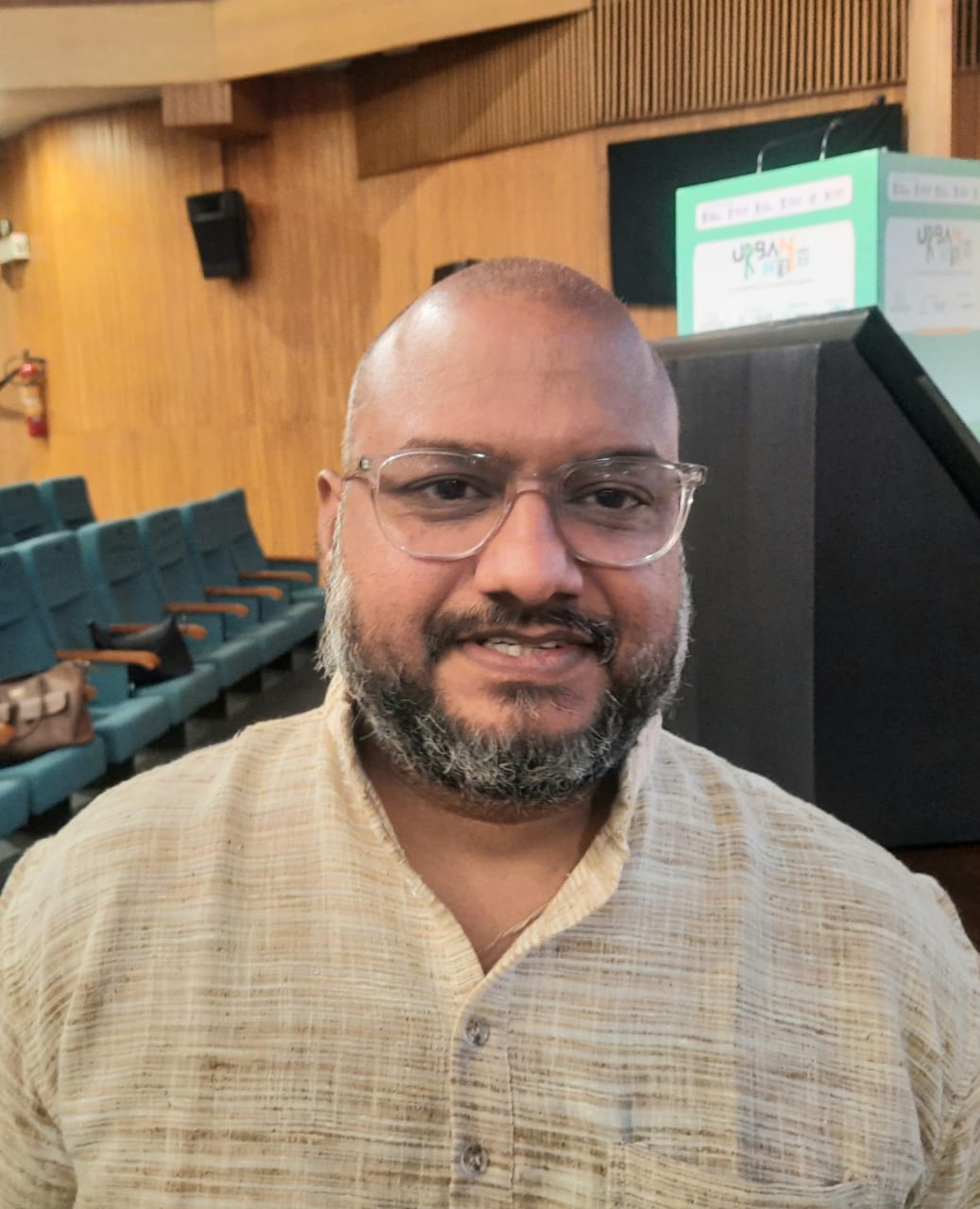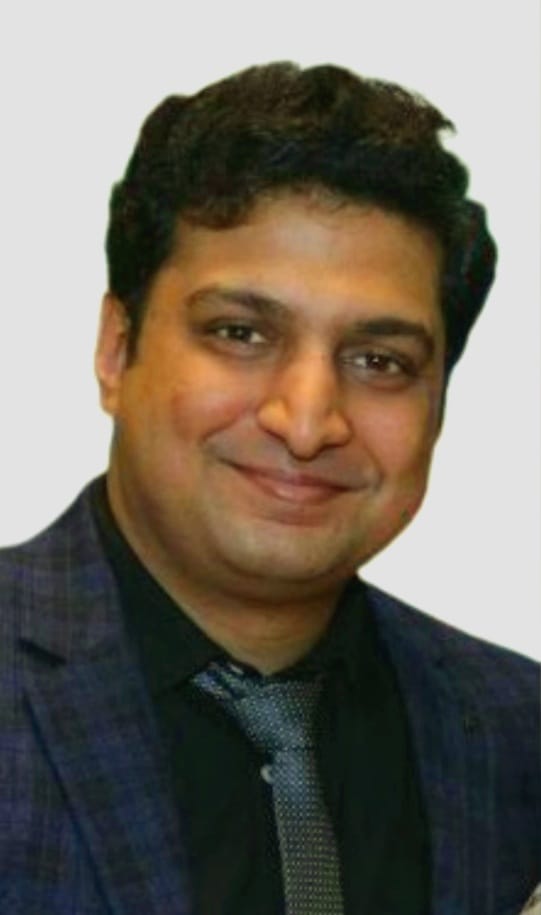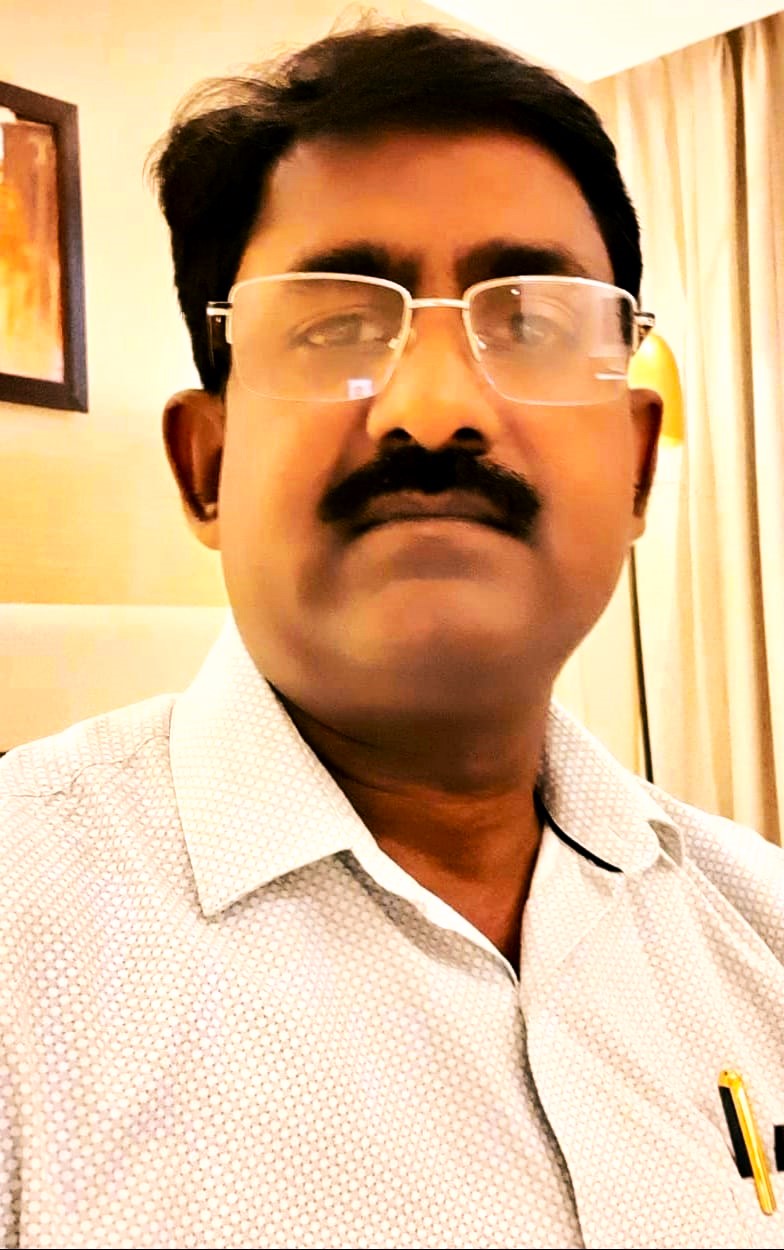Founded in 2009 and based in Bengaluru, Achira Labs is a pioneering medical diagnostics company, fully compliant with ISO 13485 standards. The company specializes in cutting-edge, microfluidics-based point-of-care (PoC) testing solutions designed to transform the healthcare landscape. With a bold mission to democratize diagnostics, Achira delivers rapid, reliable, and cost-effective, lab-quality results—right at the point of care.
At the core of its innovation lies a suite of fully automated and user-friendly platforms. These systems require only minimal sample volumes—sometimes as little as a finger-prick of capillary blood—yet deliver highly multiplexed diagnostic panels. Backed by a multidisciplinary team with deep expertise in microfluidic engineering, assay development, and sensor chemistry, Achira continues to push the boundaries of accessible healthcare innovation.
In an exclusive interaction with The Interview World at Medical Fair India 2025, Dr. Christy Rosaline S, Senior Scientist, and Faisal Ahmed Moinuddin, Business Development Manager at Achira Labs, shed light on the company’s trailblazing technologies. They detail the distinguishing features of their diagnostic platforms, outline the range of tests performed, and highlight the impressive accuracy and success rates. More importantly, they underscore Achira’s commitment to making high-quality diagnostics not just accurate—but also affordable and widely accessible.
Q: Can you walk us through the core technologies and product offerings of Achira Labs, and how they uniquely address challenges in the diagnostics landscape?
A: Achira Labs stands at the forefront of innovation, driven by a mission to make healthcare diagnostics affordable, accessible, and truly transformative. The conventional lab-based diagnostics—slow, outdated, and ill-equipped—can no longer meet the growing demands of urban India. Rural India, in comparison, remains largely excluded from this essential healthcare infrastructure.
To bridge this critical gap, we are strategically targeting both urban and rural markets. In cities, we aim to ease the burdens of diagnostics with cutting-edge solutions. Simultaneously, we are building awareness and expanding access in rural areas, where healthcare infrastructure remains minimal.
At the heart of our current offering is the Quantitative Lateral Flow Assay Platform—a cost-effective, user-friendly, and portable diagnostic tool designed for wide-scale adoption. We have already begun deploying this platform across 15 centres in Tier 3 and Tier 4 cities, including locations in Punjab, Assam, and Maharashtra. These pilot installations mark the beginning of a broader campaign to embed diagnostic capabilities deep into underserved regions.
In addition, we’ve secured manufacturing licenses from CDSCO for three of our diagnostic tests, further strengthening our ability to scale. With approvals in hand and awareness initiatives underway, we are poised to reshape the diagnostics landscape in India—empowering both urban and rural populations with the tools they need for timely and accurate healthcare.
Q: What types of diagnostic tests can Achira Labs’ technology currently perform?
A: We have begun with three key diagnostic markers: Cystatin C, C-reactive protein (CRP), and high-sensitivity CRP (hsCRP). These tests lay the foundation for our lateral flow assay platform, which is designed to be rapid, reliable, and resource-efficient.
Looking ahead, we are expanding our portfolio to include critical diagnostics such as thyroid-stimulating hormone (TSH), Dengue, procalcitonin (PCT), and Hemoglobin A1c (HbA1c). Each of these additions will enhance our ability to detect and manage a wide range of conditions with greater speed and precision.
But our mission goes far beyond innovation—it is rooted in access and equity. Our goal is to make quality healthcare diagnostics available not only in rural India, where access is severely limited, but also in urban areas, where affordability remains a major barrier.
In reality, only a small segment of urban India—the privileged few—can afford regular health checkups, diagnostic tests, or timely consultations. A vast population, even in cities, continues to neglect preventive healthcare due to cost constraints. We want to change that.
By delivering affordable and easy-to-use diagnostic solutions, we aim to empower every individual—regardless of geography or income—to take charge of their health. This is how we envision a truly inclusive healthcare system.
Q: What level of accuracy and reliability do your diagnostic platforms offer, and how do the results compare with conventional testing methods?
A: Our platform delivers over 95% specificity and more than 90% sensitivity, closely aligning with gold-standard diagnostic methods. Designed primarily for screening purposes, it empowers individuals to monitor their health without the need for constant visits to diagnostic labs.
Instead of undergoing full-scale lab tests every time, users can screen key analytes and biomarkers using our device. If any results indicate elevated levels, only then is a follow-up with gold-standard diagnostics recommended. This approach not only enables early detection but also dramatically reduces unnecessary testing expenses.
At the core of our business model is accessibility and cost-efficiency. We want individuals to take charge of their health in a timely, proactive, and affordable manner. Our platform isn’t just about diagnostics—it’s about redefining how people engage with healthcare.
Q: How does USelect differentiate itself from conventional diagnostic products in the market?
A: USelect outperforms traditional sperm separation techniques such as density gradient centrifugation and swim-up technology in both efficacy and precision. Designed for advanced reproductive procedures—including in-vitro fertilization (IVF), intrauterine insemination (IUI), and intracytoplasmic sperm injection (ICSI)—USelect delivers superior results.
Unlike conventional methods, our product effectively isolates high-quality sperm, free from debris and dead cells. This enhanced purity plays a crucial role in improving fertilization outcomes. By optimizing the separation process, USelect contributes to a significantly higher rate of successful pregnancies.
In essence, we’re not just improving sperm selection—we’re elevating the entire assisted reproductive experience through technology that is smarter, cleaner, and demonstrably more effective.
Q: Has USelect been commercialized, and if so, what has the market response been so far?
A: Yes, we have secured the manufacturing license, paving the way for full-scale commercialization of our product. We have already begun distributing across key markets, including Gujarat and Maharashtra, through established partners.
Our product is not only being used actively but is also delivering exceptional results. We’ve received highly encouraging feedback—successful conceptions have already been reported, and users have expressed strong satisfaction with both the performance and reliability of our solution.
This early validation reinforces our confidence and fuels our commitment to expanding access and impact.
Q: What has been the success rate or performance outcome of USelect in real-world applications or clinical settings?
A: We conducted a clinical trial involving 100 patients to compare the performance of USelect against the conventional density gradient (DG) centrifugation method. The study was split evenly—50 patients underwent DG treatment, while the other 50 were treated using USelect.
The results speak volumes. USelect achieved a 19% live birth rate, more than double that of the DG group, which showed only a 9% success rate. This trial clearly demonstrates USelect’s superior efficacy in assisted reproductive outcomes.
Overall, the product consistently delivered over 60–70% positive results in terms of improved sperm quality and pregnancy outcomes, firmly establishing its clinical value and game-changing potential in fertility treatments.
Q: How cost-effective is your product for end users, and how does it compare to traditional diagnostic solutions in terms of affordability?
A: In assisted reproductive technology (ART), success rates matter more than anything else. Patients are far less concerned about the costs involved—they prioritize outcomes. Traditional methods like Density Gradient (DG) and swim-up techniques, while effective, come with a critical limitation: they require highly trained specialists to collect, process, and layer the sperm. These processes are not only complex but also time-consuming.
In contrast, our technology simplifies this significantly. Any medically trained technician or lab professional can prepare the sample in just 40 minutes—no specialized expertise required. This ease of use is a game-changer.
Moreover, our product remains cost-effective. Priced between ₹1,500 and ₹2,000, it stands competitively against the density gradient method, yet remains affordable for patients undergoing treatment. Ultimately, our innovation delivers both efficiency and accessibility—without compromising success.
Q: What are the key differentiating features of your product compared to other diagnostic solutions currently available in the market?
A: Currently, no product on the market can separate sperm within 40 minutes without relying on centrifugation. Every existing solution depends on this process. In stark contrast, our product stands alone—it eliminates centrifugation entirely after sample processing.
This distinction is not just technical; it’s critical. Repeated centrifugation increases DNA fragmentation, compromising the integrity of the sperm. Damaged DNA directly impacts the chances of successful fertilization. That’s precisely why we removed centrifugation from the equation altogether.
Instead, we’ve developed a magnetic bead-based sperm separation kit. It’s fast, efficient, and most importantly, non-invasive at the molecular level. With no centrifugation involved, our solution safeguards sperm DNA—delivering a smarter, safer alternative in reproductive medicine.
Q: Who are the primary end users of your products?
A: Trained healthcare professionals can easily use this product. It’s also fully compatible with embryologists’ expertise, making it highly versatile. Once in the lab, they can seamlessly test and validate the samples—ensuring efficiency without compromising precision.
